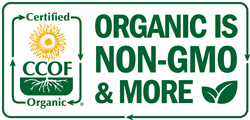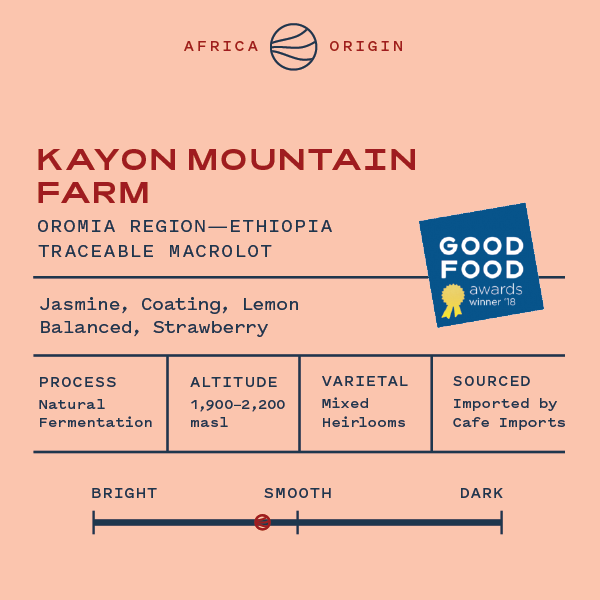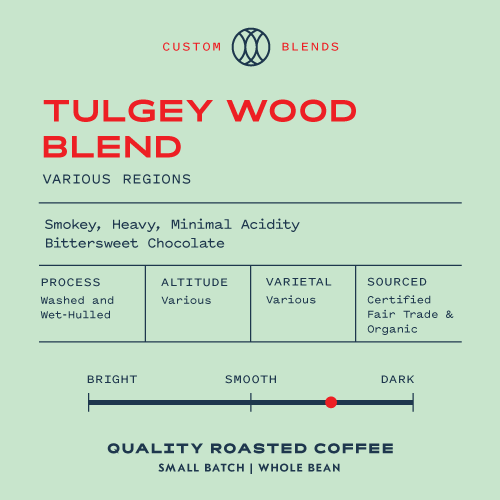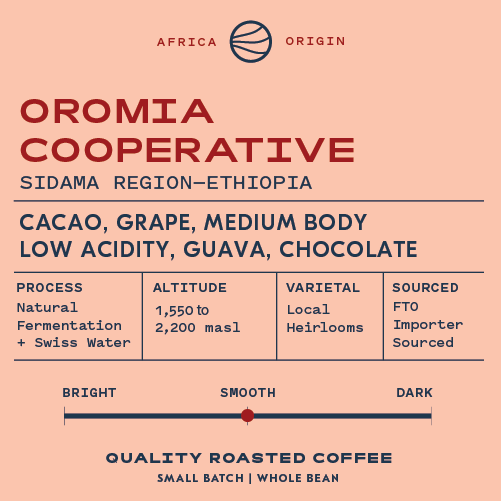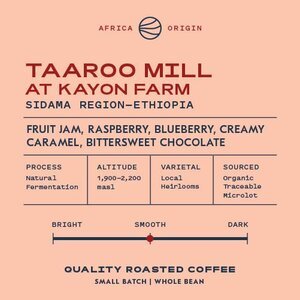We’re Certified Organic! What does that mean?
Half a year ago, we published a blog titled “Are Our Coffees Organic?” We talked a bit about what we look for in coffee and how, in many cases, coffee can be grown as organic - even beyond organic - but not have that “Certified Organic” label attached to it. Well, between then and now, and a pandemic later, the Penstock Roastery is now certified to apply that label to our packaging!
What does organic certification mean, what does it mean for Penstock, and why did we get it?
From the start, the quality, economic, social, and environmental impacts of the coffee we serve has been at the forefront of our mission. This means we partner with farmers who opt out of synthetic fertilizers, pesticides, herbicides, and other additives because these chemicals can harm the workers’ health, the surrounding environment, and the surrounding community. Instead, many of our producing partners use practices such as fertilization with compost, inter-cropping, proper plant spacing, and integrated pest management (think ducks free-ranging around blueberry bushes and eating the bugs that are harmful to the blueberries). Organic certification is an acknowledgment that a farm, roastery, or facility meets standards and metrics (i.e. how much of a kind of fertilizer is used, etc.) set by the USDA that aim to keep potentially harmful chemicals from polluting the environment and from things we consume. As we remind ourselves of our mission to offer excellent coffee that is also sustainably sourced, serving organic-certified coffee is something we wanted to pursue.
But if Penstock already sources responsibly and handles with care, why get a certification if it’s just a recognition of what we’ve been doing all along? Well, it is exactly what we were hoping to get out of it! Part of our mission is to build and serve our community, and in getting organically certified, we wanted to better serve our customers who would appreciate a third-party’s verification that the coffee we serve and sell does, indeed, meet CCOF (our certifier) and USDA’s regulations.
What makes a coffee organic?
it is organically grown and is, at the farm-level, certified (i.e. fertilizers used, washing, think inputs and processes)
it is brought to the U.S. by an importer that is itself, certified (i.e. in the way it handles the certified, agricultural product, no cross-contamination, etc.)
This is not the end of the story: even though the farmer and importer is certified, the roastery needs to also be certified in order sell coffee to you as ‘certified organic.’ There are several organizations that administer the certification. We chose to go through the California Certified Organic Farmers (CCOF) to get our certification for their commitment to organic agriculture and having a supportive process. After much paperwork, multiple iterations of label updates to comply with certification standards, and an inspection to show how we continue to maintain and careful records from purchases and keep logs in our roastery and shop operations, we are ‘certified’! And labels on our bags can officially say so :)
What does this mean for us moving forward?
We have some new practices that we will be upholding from storing organic coffees separately, roasting them in the beginning of the roast day, using only cleaners on the ‘National List’, but most importantly, committing to organically grown coffee through long-term partnerships.
“Why not go ALL organic?” you may ask
We are still sourcing excellent coffee - you can be sure of that! - even if the farmers we get the coffee from have no official certification. It is important to us to continue pursing coffees that are not only excellent, but also support other producers who we believe are doing their best to grow coffee well and support the financial, social and emotional needs of its workers and community. We also recognize that tiny “nano-lots” cannot easily obtain such certification, and it is these that we truly enjoy partnering with in order to offer something truly unique. One might say it is actually more work to offer both—especially at our size, but it seems worth it. What do you think?
We realize that being able to afford an organic certification is a privilege for any kind of business, and that it is not an opportunity that most small and even medium farmers have. These farmers often employ organic agricultural practices, but the financial strain of a third-party certification (or even fertilizer for that matter!) often means that they do not get the same compensation that a farmer with a certification would. We see it as important to do our best to support this farming community as well.
Our Certified Organic Coffee:
Organically grown but not certified:
EcoCafe Haiti
Like on many small farms around the world, EcoCafe does not use synthetic additives because they are expensive and difficult to obtain, so their coffee is organically grown, though not certified.
Avoid using synthetic chemicals:
These farms generally do not use synthetic fertilizers, herbicides, pesticides, and other additives, but may use a minimum effective amount when faced with the risk of significant crop loss

